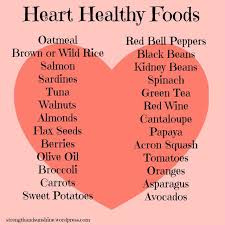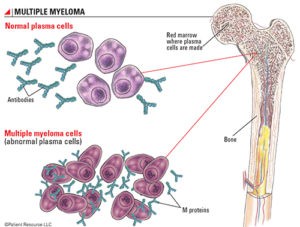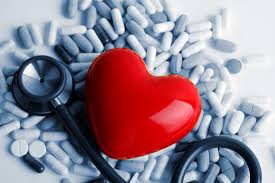
Diagnosed with Cancer? Your two greatest challenges are understanding cancer and understanding possible side effects from chemo and radiation. Knowledge is Power!
Learn about conventional, complementary, and integrative therapies.
Dealing with treatment side effects? Learn about evidence-based therapies to alleviate your symptoms.
Click the orange button to the right to learn more.
- You are here:
- Home »
- Blog »
- side effects ID and prevention »
- Cardiac Rehab for Cancer Patients
Cardiac Rehab for Cancer Patients

“implement a multi-level approach to cardiac rehab, which includes exercise; nutritional counseling; and management of weight, blood pressure, cholesterol, diabetes, and smoking”
If you are a cancer patient undergoing active treatment for your cancer, yes, your oncologist should encourage you to undergo cardiac rehab once your treatment concludes. Further, if you are a cancer survivor, no matter how long its been since you completed active treatment, you should undergo cardiac rehab.
You see, I have been living with an incurable cancer called multiple myeloma since 1994. My oncologist put me through aggressive chemotherapy and radiation treatments in an effort to manage my cancer. I say manage because multiple myeloma is incurable. Long story short, I relapsed twice and was told that nothing more could be done. I underwent a non-FDA approved therapy and have been in complete remission since 4/1999.
I view the article below a little more skeptically than the doctors quoted or even the AHA. I was recently diagnosed with chemotherapy-induced cardiomyoapthy by a cardio-oncologist- yes, heart damage more than 24 years after my chemotherapy and autologous stem cell transplant.
My belief is that if I developed heart disease, then anyone can. Though my induction therapy and ASCT chemo regimens were cardio-toxic, no one said anything to me about cardiac rehabilitation. My point is that while the American Heart Association is well-meaning, I don’t expect conventional oncology to follow their recommendation any time soon. Cancer patients and survivors are on their own.
Okay, enough oncology bashing… The good news is that cardiac rehab will help you avoid heart disease, it will reduce your risk of a relapse.
- Exercise- frequent, moderate exercise. No need to run marathons. I work out daily at my local Life Time Fitness (big, friendly place with lots of cardiac equiptment). Easy, inexpensive.
- Nutrition-lots of fruits and veggies, less red meat. No animal fat if you can do it. Little if any processed sugar. My philosophy- “progress not perfection.”
- Lifestyle therapies- no smoking, less alcohol (progress not…). There is a sauna at my Life Time Fitness. Sweating is great detox, relaxing, etc.
- Nutritional supplementation- I take CoQ10, omega-3 fatty acids, l carnitine, other heart health supplements daily-
If you exercise regularly, eat less meat, more fruits/veggies, less alchohol, etc. you will lose weight. Your BP and cholesterol will probably come down too. If you would like to learn more about cardiac rehab, scroll down the page, post a question or comment and I will reply to you ASAP.
Thanks,
David Emerson
- Cancer Survivor
- Cancer Coach
- Director PeopleBeatingCancer
Recommended Reading:
- AYA, Childhood Cancer Survivors’ Future Risk of Heart Disease
- Cancer Coaching- Antioxidants During Chemotherapy/Radiation?
- Nutrition as Cancer Therapy Before, During After Therapy
Heart doctors recommend cardiac rehab for cancer patients
“Cancer patients and survivors are often at high risk of heart disease, so heart and cancer doctors should consider providing cardio-oncology rehabilitation as patients move through their cancer treatment, the American Heart Association (AHA) urges in a new scientific statement…
“Exercise is one of the best ways to protect the whole person and get them through treatment,” Gilchrist, the statement’s lead author and also chair of the AHA’s Exercise, Cardiac Rehabilitation and Secondary Prevention Committee, said in a phone interview. “Cardiac rehabilitation is one of the ways to systematically engage patients in an exercise program and look at the other factors they may be dealing with, such as uncontrolled blood pressure or depression.”
Gilchrist and her colleagues decided to write the statement after seeing research emerging in the past year about increased cardiovascular risk for breast, prostate, and colorectal cancer patients. They brought together experts in cardiology, oncology, cancer rehabilitation, primary care, and exercise science to discuss the latest research and what to do next…
The higher risk is likely due to both normal aging and cancer-related effects such radiation, chemotherapy, targeted therapy, and weight gain. Under cardio-oncology rehabilitation, the authors write, doctors would identify patients at a high risk for heart disease, especially those exposed to high doses of cardiotoxic chemotherapy or radiation. Then they would implement a multi-level approach to cardiac rehabilitation, which includes exercise; nutritional counseling; and management of weight, blood pressure, cholesterol, diabetes, and smoking. In addition, they would recommend psychosocial management in relation to depression, anxiety, social isolation, marital stress, sexual dysfunction, and substance abuse…
More than two dozen randomized clinical trials have examined the efficacy of exercise on cardiorespiratory fitness for different types of cancer patients and have generally found that exercise can make up for the declines in heart health that cancer treatment causes, the authors note…
The goal is to “facilitate the development and integration of cardio-oncology rehabilitation as an aspect of standard of care for cancer patients and survivors,””



